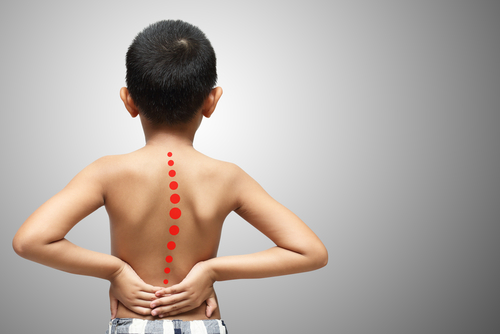Spine Conditions
Paediatric Spine Disorders
Paediatric spine disorders refer to any abnormality or condition that affects the spinal column in children. These conditions can affect the spinal cord, nerves, and other supporting structures, leading to a variety of symptoms and complications. Paediatric spine disorders can be congenital (present at birth) or acquired (developed after birth). Some common paediatric spine disorders include scoliosis, kyphosis, spina bifida, and congenital torticollis.

Symptoms
The symptoms of paediatric spine disorders depend on the specific condition, but some common signs and symptoms include:
- Abnormal curvature of the spine
- Difficulty with movement or walking
- Pain or discomfort in the back or neck
- Tingling, numbness, or weakness in the limbs
- Bowel or bladder problems
- Breathing difficulties
- Developmental delays or abnormalities
- Uneven shoulder or hip height
Causes
Paediatric spine disorders can be caused by a variety of factors, including genetics, congenital abnormalities, injuries, infections, and underlying medical conditions. Some specific causes of paediatric spine disorders include:
- Genetic factors: Some spine disorders, such as scoliosis, may run in families and be caused by genetic factors.
- Congenital abnormalities: Conditions such as spina bifida and congenital scoliosis are present at birth and are caused by abnormalities in the development of the spinal column.
- Injuries: Trauma to the spine can cause a variety of spinal cord injuries and deformities.
- Infections: Infections such as meningitis can affect the spinal cord and lead to complications.
- Underlying medical conditions: Conditions such as cerebral palsy or muscular dystrophy can affect muscle and nerve function and lead to spine abnormalities.

